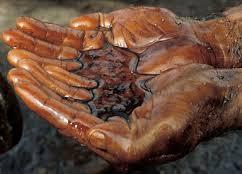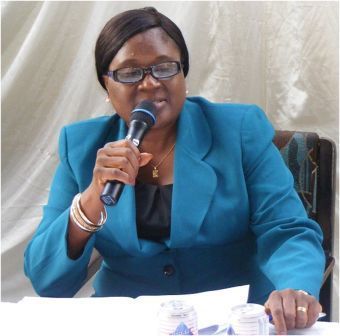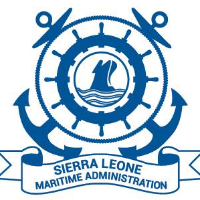SLMA Hosts Oil Spill Contingency Workshop
The Sierra Leone Maritime Administration (SLMA) yesterday commenced a five day workshop on Oil Spill Contingency Planning at the Administration’s conference hall at Government Wharf in Freetown.
In opening the workshop, the Acting Minister of Transport and Aviation, Hon. Ibrahim Worshinga Mansaray, stated that participants will look at the Oil Pollution Response and Cooperation (OPRC) Level (3) for the Review of the National Oil Spill Contingency Plan. He said he felt highly honoured to be a part of the workshop.
He revealed that the Minister of Transport and Aviation, Mr. Leonard Balogun Koroma, was attending a meeting with the Delta Airlines Management in Atlanta to finalize an initiative of His Excellency President Earnest Bia Koroma for the commencement of operations of the Delta Airlines in Sierra Leone shortly.
He thanked the Secretary General of the International Maritime Organization (IMO) for having provided the Consultant and Facilitators for the workshop.
He also thanked the IMO for their support to the many seminars and conferences that the SLMA has benefited from over the years.
“We want to assure you that all the recommendations that will come out of this workshop will be implemented to the fullest by my Ministry for the SLMA and partners to succeed,” he stressed.
In his comments, the Executive Director of SLMA, Alhaji Wuroh Jalloh, said he was very happy to welcome the participants to the SLMA headquarters.
He said he would like to thank the International Petroleum Industry Environmental Conservation Association (IPIECA) and the International Maritime Organization (IMO), for the continuous support they have been providing to Sierra Leone in preparing to combat spills.
He observed that it was a blessing that these organizations have chosen to focus on Sierra Leone with the hosting of this workshop and by also providing technical assistance for the workshop.
“This reminds us that the development of the National Oil Spill Contingency Plan is in line with the national policy for the protection of various ecosystems within the Sierra Leone territory which is of great concern to stakeholders,” he noted.
He maintained that the transportation of oil to and from Sierra Leone and in some countries of the Gulf of Guinea, has experienced a marked increase over the last decade, activities which he said are potential sources of pollution of and marine environments, whose impact on the environment and the coastal communities can be catastrophic in the absence of prevention and mitigation measures.
He explained that the prevention and management of these disasters are implemented by the countries concerned through national plans to combat accidental release of oil into the ecosystems.
He concluded that in was in this context that the SLMA made a request to the IMO for technical assistance to review the existing National Oil Spill Contingency Plan to fit into modern day standards and techniques in order to strengthen the capacity in managing environmental projects in the oil sector.
The big advantages of being a party to OPIC is that Sierra Leone in the case of a major oil spill can call on government assistance from more than eighty countries around the world. Most of these countries have advanced oil spill contingency systems in place.
Sierra Leone has ratified the International Convention on Oil Pollution Preparedness Response and Cooperation (OPIC 1990).
Sierra Leone is also a party to the International Convention on Civil liability for Oil Pollution Damage by Ships (CLC 1992) and the International Convention on the Establishment of an International Fund for Compensation for Oil Pollution Damage (FUND 1992).
Sierra Leone is also a party to Annexes 1-6 of the International Convention on the Prevention of Pollution from Ship 1973 as modified by the protocol of 1978 relation thereto (MARPOL 73-78) and Sierra Leone is a party to the Convention for Cooperation in the Development of the Marine and Coastal Environment of the West and Central African region (Abidjan Convention 1981) and its protocol concerning cooperation in combating pollution in cases of emergency protocol 1981. Sierra Leone has also actively participated in WACAF Convention.
In her remarks, Madam Fatou Jallow of the Environmental Protection Agency (EPA) said oil spills caused suffering and devastation to the affected communities in the Delta region of Nigeria.
Communities have dealt with nearly fifty years of oil production and water contamination, the much acclaimed being the United Nations assessment of Ogoni land.
The IMO Regional Coordinator for west and Central Africa, Mr. Dallas Laryea, in his statement, stressed that Sierra Leone had already ratified a number of conventions relating to marine pollution, namely, MARPOL-78, QPRC-90, CLC-92 and the FUNN-2.
The workshop which was chaired by Captain Freddy Bob-Jones, the Chief Executive Officer of C ZAK
Stay with Sierra Express Media, for your trusted place in news!
© 2013, https:. All rights reserved.






